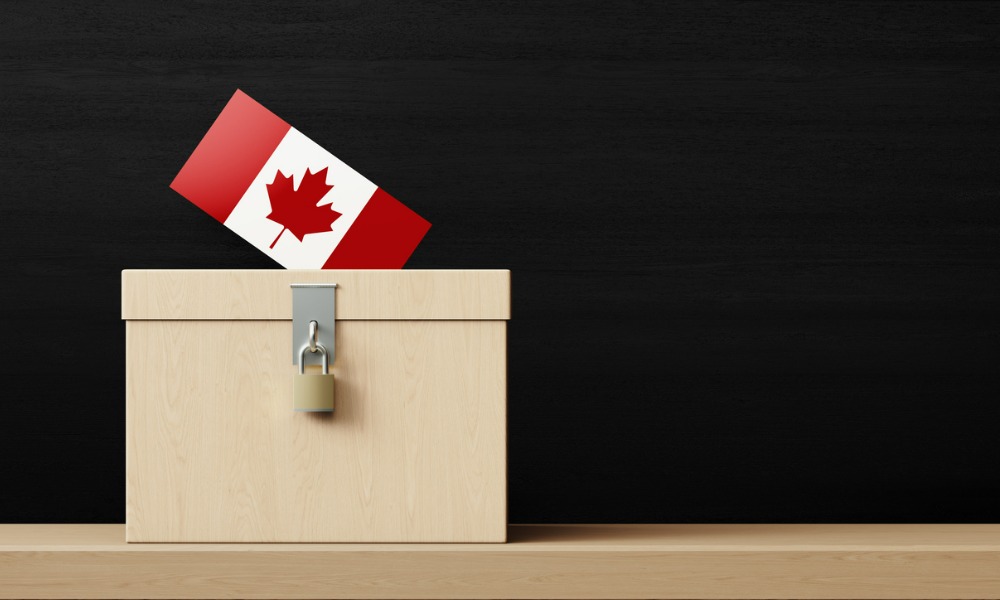Two senior advisors parse what's been promised and how its implementation would impact the financial industry

With only four days left until the federal election, the financial advising industry is watching the campaign with mild interest since, so far, it’s had limited implications for the industry, even with the Liberals and Conservatives now in a dead heat.
“The first thing to remember when it comes to all of this is that, in Canada, polls don’t matter because first past the post dictates everything,” Jason Pereira, senior partner and financial planner at Woodgate Financial, told Wealth Professional. “Even though they’re neck and neck, if you look at the projections, there’s about a 20-seat margin, on average, right now. So, it’s not looking as close as people seem to think it is in the headline number.
“So, what does it mean if either one of them gets in? Well, direct impact to the industry? Not a heck of a lot.”
While the Liberals have been talking about taxing the banks, Pereira thinks they’ll find ways around that.
The one thing that the Progressive Conservatives have promised that would impact the financial industry is that they’ll make fees disclosure, specifically at the banks, a bigger issue.
“Good. Frankly, that should apply across the board,” said Pereira. “I just had this argument yesterday with someone who was an advisor and was trying to defend the current system, saying that fees are already disclosed. My response is, ‘really? Where can a client find advisor compensation, fund cost, internal trading costs to the fund, trade costs, and account fees all summed up – either as one number or broken down – in one place?’”
The other promise that he finds “unbelievably misguided” is the Liberals’ policy on first-time homebuyers’ accounts, which he said wasn’t addressing the affordability question, but could also be accommodated in existing plans. There’s already plenty of savings room within the Tax-free Savings Account (TFSA) and Registered Savings Plan (RSP) frameworks, so he said the Liberals could add another program within the RSP, which could be more quickly implemented than the two years he thought it would take them to set up a new savings plan.
Allan Small, the senior investment advisor of Allan Small Financial Group with IA Private Wealth, said historically the conservatives tend to be more business focused and fiscally responsible than the Liberals. He pointed to the Liberals’ promises to tax the banks and raise taxes on the wealthy, but said he expects taxes in general to probably increase.
What’s most notable about the election is the fact the Liberals appear to have been trying to get a majority, but may end up in the same minority position they now hold – after the country has spent $600 million on an election, which is angering some voters. They’ll then need the NDP again to support their government.
While Small didn’t see the Greens or NDP eating into much Liberal support, he said there’s concern that the People’s Party of Canada could eat into some of the Progressive Conservative’s (PC) vote. The PCs had pulled ahead in the past month, but were neck-in-neck with the Liberals at press time.
“It doesn’t look like a majority is in the cards either way,” said Small. “So, whomever gets into power is going to have to win over someone else to get things passed. The NDP is the third largest in terms of votes, so it’s going to be in a pretty good position to negotiate.”



